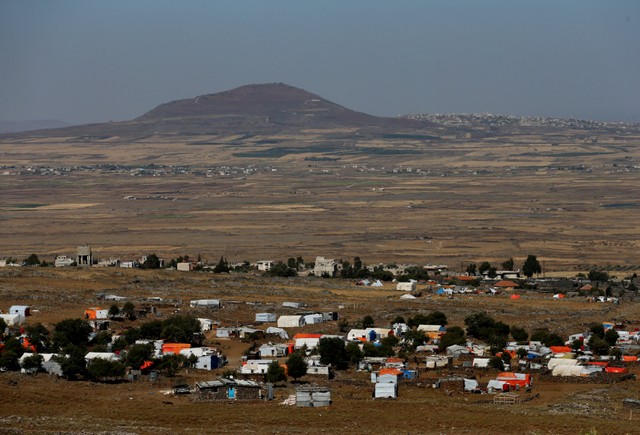
DAMASCUS - At least 270,000 people have fled their homes in south-western Syria since the military launched an assault on rebel-held areas two weeks ago, the UN says.
Many of those displaced by the fighting in Deraa and Quneitra provinces have headed towards the borders with Jordan and the Israeli-occupied Golan Heights.
But neither country has said it will allow an influx of refugees, sparking fears of a humanitarian "catastrophe".
Government forces have been advancing with the help of Russian air strikes.
On Sunday, rebels in the major town of Bosra al-Sham reportedly agreed to lay down their arms and accept President Bashar al-Assad's rule.
More than 130 civilians have been killed since hostilities escalated, according to the Syrian Observatory for Human Rights, a UK-based monitoring group.
Deraa and Quneitra had been relatively calm for almost a year because of a "de-escalation" agreement brokered by the US and Jordan, which support the opposition, and Russia, a staunch ally of the government.
But Mr Assad set his sights on regaining full control of the provinces after defeating rebels in the Eastern Ghouta region outside the capital Damascus in April.
UN officials estimated only six days ago that up to 50,000 people had fled their homes in rebel-held towns and villages in response to the government's intense air and artillery strikes. By Monday, the figure was more than five times higher.
"We were expecting the number of displaced in southern Syria to reach 200,000, but it has already exceeded 270,000 people in record time," Mohammad Hawari, a spokesman for the UN Refugee Agency in Jordan, told AFP news agency.
Up to 70,000 of the displaced are reportedly gathered near the closed Nassib border crossing with Jordan, where many families are being forced to live in makeshift shelters or out in the open, with limited access to food or water.
"We lost our children, our houses, our places to take shelter," one woman at a camp told AFP news agency on Sunday. "We are sitting on the ground. We have no water to wash our hands. We have no water to drink, no food to eat."
UN High Commissioner for Human Rights Zeid Raad Al Hussein warned of a humanitarian catastrophe in Deraa and urged neighbouring countries to provide safe passage to those wishing to flee the violence.(FA)


